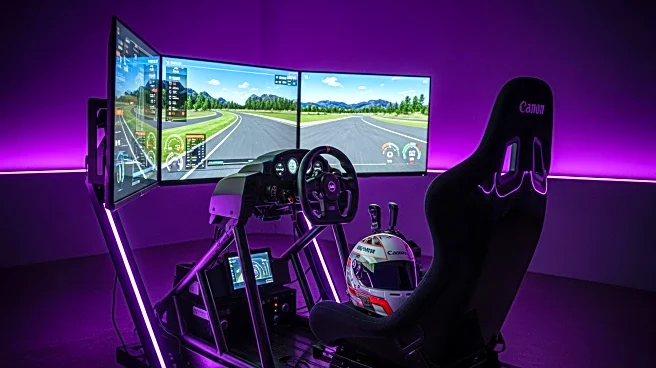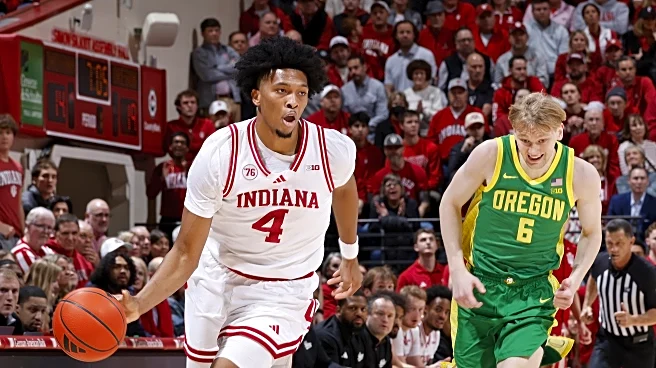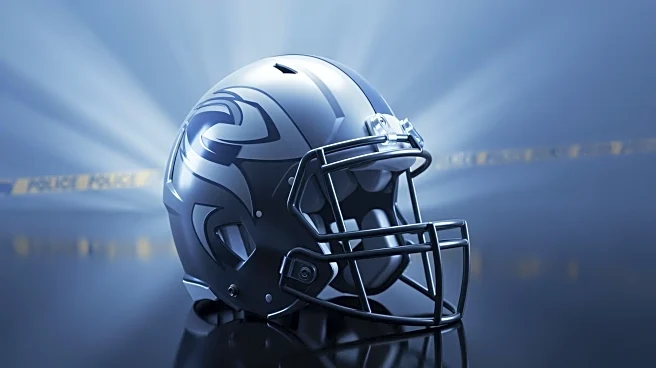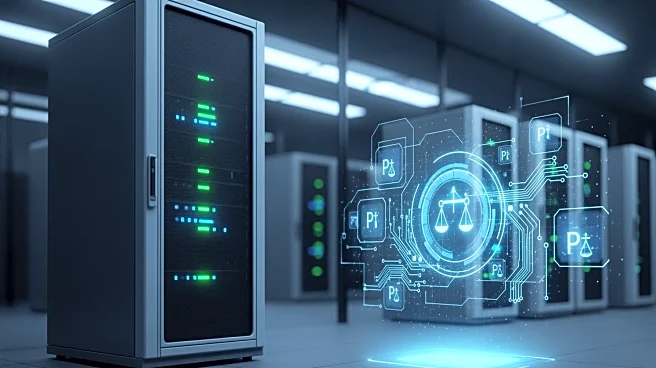What's Happening?
A five-year-old sim racer named Emerson has captured attention with his impressive performance in a virtual NASCAR Truck Series race at Daytona. Emerson, who is managed by his parents through the Instagram account 'Emerson Drives,' has gained popularity with over 20,000 followers. In a video showcasing his racing skills, Emerson demonstrated remarkable focus and precision, passing several competitors to finish eighth. The video features Emerson receiving guidance on when to accelerate and lift off the gas pedal, highlighting his potential in the racing world. The accessibility of advanced simulators has become a significant tool for both young and veteran drivers, offering a platform to hone their skills.
Why It's Important?
The rise of sim racing as a training tool is transforming the landscape of motorsports. With the ability to practice extensively without the financial burden of traditional track programs, sim racing offers aspiring drivers a cost-effective alternative to develop their skills. This shift is exemplified by professional drivers like Max Verstappen, who have successfully translated sim racing experience into real-world victories. The growing acceptance of sim racing as a legitimate training method could democratize access to motorsports, allowing more individuals to pursue racing careers without the prohibitive costs associated with traditional pathways.
What's Next?
As sim racing continues to gain traction, it is likely to become an integral part of driver development programs. Teams may increasingly require sim racing experience as a prerequisite for professional racing opportunities. This trend could lead to a broader pool of talent entering the motorsports industry, potentially altering the competitive dynamics. Additionally, the ongoing advancements in simulator technology may further enhance the realism and effectiveness of sim racing as a training tool, solidifying its role in the future of racing.
Beyond the Headlines
The integration of sim racing into professional motorsports raises questions about the evolving nature of skill acquisition and the role of technology in sports. As sim racing becomes more mainstream, it may challenge traditional perceptions of what constitutes a 'real' racer, blurring the lines between virtual and physical competition. This shift could also influence the cultural and ethical dimensions of racing, as the accessibility of sim racing democratizes the sport, potentially leading to a more diverse and inclusive racing community.










